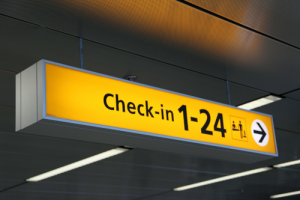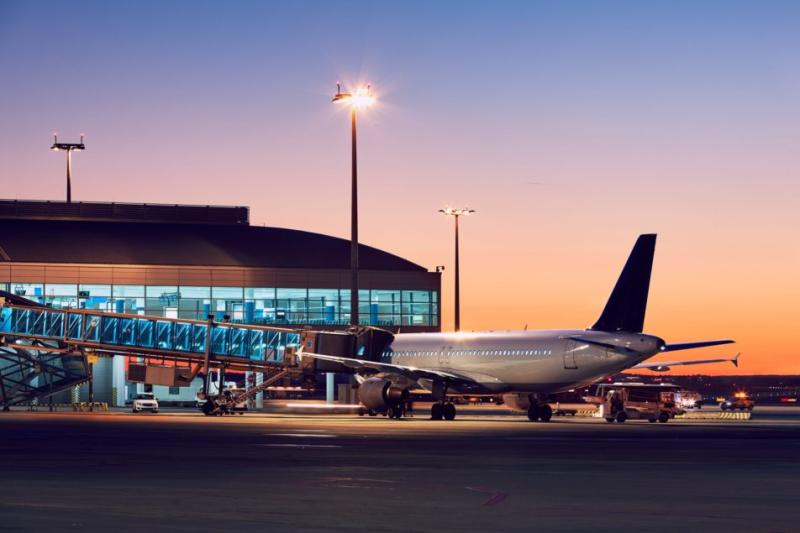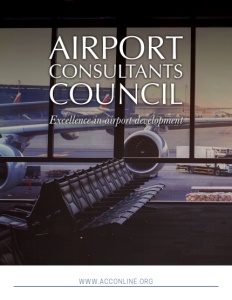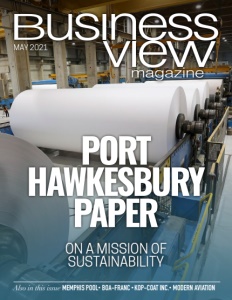Airport Consultants Council
Excellence in airport development
Business View Magazine interviews T.J. Schulz, President of Airport Consultants Council, as part of our focus on U.S. Regional Airports
Founded in 1978, the Airport Consultants Council (ACC) is the global trade association that represents private businesses involved in the development and operations of airports and related facilities. ACC is the only association that focuses exclusively on the business interests of firms with airport-related technical expertise.
ACC provides airport consultants, builders, and suppliers with a voice in Washington, D.C. and throughout the world. The Council presents issues directly to leaders on Capitol Hill, expressing members’ concerns in the global marketing arena and educating members on effective advocacy techniques. Based in Alexandria, Virginia, the Council regularly informs its members of new trends, while promoting fair competition and procurement practices that protect the industry’s bottom line. This year, the 43rd ACC Annual Conference and Exposition – a very popular event for attendees from near and far – is slated to run from October 24-26, 2021 in Silverado, Napa.
Business View recently spoke with the President of Airport Consultants Council, T.J. Schulz, about the industry as a whole, and the important role that ACC plays in advancing airport development innovation and best practices and as a valuable resource for its members. The following are highlights of the conversation.

BVM: Can you share the background history of ACC?
Schulz: “ACC started back in 1978, over a delayed airport funding bill for the FAA. A number of consultants got together under the premise that not only do the airports have a vested stake in funding but so does the private sector – the companies hired by airports to plan, design, and construct their infrastructure and facilities. That’s how it started and it was heavily focused on companies that provide professional services, in particular airfield design and other design activities.
“Eventually, we brought in companies that do preliminary planning and environmental reviews. A lot of those companies grew beyond design into other areas of airport development. So we were very heavy on planning, design, and architecture. Then in the early 1990s, we brought in a number of vendors that provide and sell products to airports – anything from lighting systems, to IT, security equipment, etc.
“Since 2000, we’ve evolved to have over 240 companies covering all aspects of airports. Continuing with planning, design, and architecture, we brought on a number of contractors. And after 9/11, a lot of companies became very focused on security, particularly on passenger and baggage screening. Right now we have a huge diversity of companies involved in all aspects of airport development and operations.”
BVM: What are your key focus areas?
Schulz: “Some of the more nascent things our companies are involved in include engaging in public-private partnerships to help finance airport projects. Under P3s, the private sector not only design and finance airports, but also operate and maintain them. And we’re just starting to get into future technologies such as drones, UAMs – which are vertical electric taxis – and spaceports, too. So we’re expanding into a lot of innovative, aviation-related activities. There’s never a dull moment.
“Among other things, airports hire ACC member companies to help fulfill their capital programs and projects and make sure they conform with TSA and FAA standards and funding requirements. Overall, ACC’s biggest service we provide to our members is networking opportunities. In this industry, different companies will align and team up on one project, and compete on another. We offer opportunities for companies to come together and learn from each other. We also provide market analysis on trends and priorities in airport developments.
“We work on advocacy on Capitol Hill and securing funding for airports. But also, on a technical level, we’ve become trusted advisors to TSA and FAA. Because some of our members are actually in the field implementing the standards and regulations, we can provide perspectives on airports of all sizes and types across the country.”

BVM: Does ACC provide education and training?
Schulz: “We have a very strong training program that covers a vast array of airport activities and capital projects. Our meat and potatoes training primarily covers airport engineering, runway configuration, design, materials, and best practices in airport planning and environmental. We’re also very heavy on terminal passenger facilitation, security technology, and the use of biometrics. Even landside access to and from airports. We really touch on all aspects of the airport enterprise.
“Thankfully, we set up the ACC Training Hub, our online training platform, in 2018, and that was invaluable when everyone started working from home due to the pandemic. We could cover important training with virtual education programs. We represent a lot of engineers and planners that need accreditation and credit hours, so we’ve been able to provide that for those individuals.”
BVM: How are you helping members with the impact of COVID-19?
Schulz: “In Feb. 2020, we released a Capital Development Outlook report. In that report, we identified $138 billion in planned projects at airports over the next five years. Before the pandemic, we were at record levels of travel. Terminals were packed, airplanes were packed, and we were playing catch-up – trying to expand terminal facilities, build new facilities, rehabilitate really old facilities, and also get capacity on the airside. We released that report, and due to the pandemic shut down, within two-and-a-half weeks it was pretty much obsolete.
“The aviation system has had numerous shocks and recessions but nothing like this pandemic, both as it relates to the immediacy of the negative impact and its breadth on the international economy. A lot of companies were helping airports on the day-to-day changes to operations – how to stay up and running, and how to keep passengers safe, particularly those few that are travelling. We were also very purposeful on looking at shorter to mid-term impacts on airports and the way we travel – two to five years down the road. This included what needs to be done now to ensure airports have the facilities and systems they need to meet the changing dynamics of air travel based on the pandemic. It involves all aspects of social distancing, how to process passengers safely – from curbside arrival until they get to their gate and board the plane. Overall, we’ve been trying to focus on the long-term implications post-COVID on airport terminal facilities and designs.”
BVM: What industry advancements are you anticipating going forward?
Schulz: “We are very much looking forward to new technologies that will impact airports and aviation. For example: alternative fuels for aircraft and what some of the infrastructure and fuel system needs are going to be. We are also looking into autonomous vehicles coming to the airport and, eventually, running on the airside, as it relates to baggage carts and tow carts. For us, a lot of our members are trying to help airports understand where they need to be in five to ten years and beyond, and what they need to start doing now to prepare for that.
“Many of our companies had a pretty large backlog of work that helped sustain them through last year, as a lot of airports have paused their capital programs, waiting to see what recovery looks like. We will need to see how travel patterns might shift. To a large extent, the industry is just trying to help airports along. During the last recession in 2008, and for a few years after, airports did little to no planning or infrastructure improvements. Then all of a sudden, we were at a point where recovery happened and we were quickly trying to catch up on capacity due to record numbers of travelers.
“We’re trying to tell airports how they can move forward with their activities and with their capital programs. This includes helping airports determine what types of projects make sense, particularly when we don’t know when recovery is going to happen or what it’s going to look like. There’s a lot of activity on that front. In some ways, the impact of COVID has helped to accelerate a whole lot of technologies and initiatives that we were looking for prior to the pandemic. This has helped to drive more automation, the use of biometrics, less touches, and less people interaction on the passenger journey.”
BVM: How does the landscape look for airports in the future?
Schulz: “Our members range from the biggest international airports around the world all the way to remote grass airstrips in Alaska. Recovery is going to be very different for some airports compared to others. For example, a lot of regional airports are already above pre-pandemic travel levels. Southwest have opened up new markets between secondary cities, rather than going through the big hub airports. It’s going to be interesting to see how it all plays out.
“There’s a lot of opportunity to fix what we have. The average airport facility is 40 years old, so there’s plenty of work to be done. A lot of airports have actually taken advantage of the downtime and accelerated projects because of the reduced traffic. But, the needs are still out there.
“The pandemic has shown that this industry is incredibly resilient. The only really big question in the next three to five years is how quickly we’re going to come back. As far as how we travel, I think this is going to facilitate and enhance more control by each individual passenger over the course of their journey – all the way from booking a ticket, to boarding a plane. It will be our mobile phone and our face (biometrics) that will get us through the whole passenger journey. If it’s done right, I think it could be very beneficial.”
AT A GLANCE
Airport Consultants Council
What: Global trade association representing private businesses involved in airport development and operations
Where: Headquarters in Alexandria, Virginia
Website: www.acconline.org


